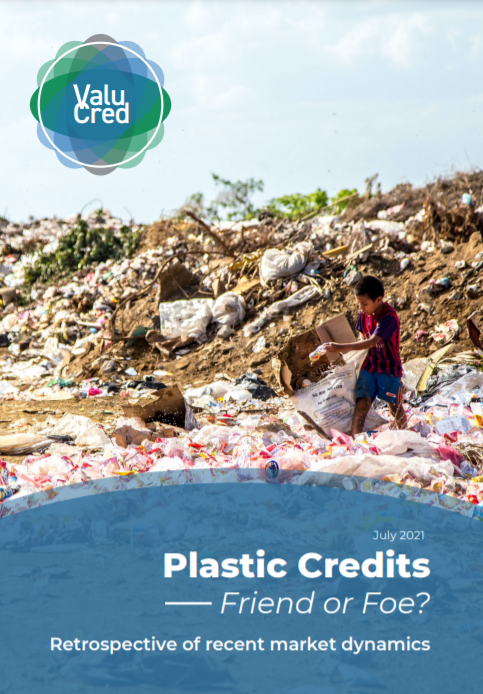Plastic Credits - Friend or Foe?
Introduction
With socio-environmental awareness continually growing yet Extended Producer Responsibility (EPR) schemes not being available in most markets outside Europe, plastic packaging causes headaches for hundreds of businesses. Innovative solutions are desperately sought to stem the plastic tide as the pressure on governments and businesses increase. Along with the plastic debris ‘Plastic Credits’ swept ashore in most recent years. But what first sounded promising, now quickly is becoming an environmental pariah. Why is that the case?
Are we at risk of cutting corners by focusing solely the "new commodity" in form of plastic recyclates and shying away from the difficult debate about the social implications that come with it? The idea of "plastic neutrality" requires continuous and unlimited access to recyclates to match the amounts of plastic we pump into the markets every day. In this hasty yet idealistic pursuit of “plastic neutrality” we tend to forget that recyclates are labour intensive, and that to warrant sustainable material flows all people in the value chain must be adequately compensated. As pressure increases for the Fast Moving Consumer Goods industry so does the pressure on our society and ecosystems. Yet, the awareness of social and humanitarian impacts in the plastic pollution debate is still not on par with the environmental impacts. We're risking to repeat the oversights of the Carbon Markets that gave rise to the Climate Justice movement. As in Climate Change, the impacts of plastic pollution are not borne equally or fairly, between rich and poor, women and men, and older and younger generations.
ValuCred analysed the plastic recycling sector and specifically the Plastic Credit market in terms of its ability to create the much needed market transition, anchoring social justice and sustainability firmly within its accounting mechanisms. In 2021, ValuCred reviewed 19 out of 28 identified relevant international standardsi in addition to 9 related certification servicesii, and 38 plastic crediting schemes and platformsiii. Analysing the wider market landscape, we have identified some of the reasons that may explain the inversely proportional relationship between the interest in impactful solutions and their business uptake.
This analytical report focuses on the seven most relevant voluntary market standards in the newly evolving Plastic Credit market space. Further research results and insights into certification services and projects, plastic credit schemes and platforms will be shared in a separate report in the near future.
ValuCred is a consortium led by Yunus Environment Hub, Nehlsen AG & Rodiek, and BlackForest Solutions, for the design and financing of sustainable plastic waste management systems. ValuCred is one of the first projects promoted by PREVENT Waste Alliance, with funding from the German Federal Ministry for Economic Cooperation and Development (BMZ) and the Röchling Stiftung for the development of an international Standard Process Model (SPM) that aligns and connects interdependent stakeholders in the ‚Plastic Credits‘ market.


